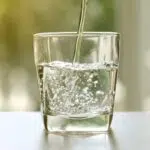Water-Saving Week, from May 25 to 29 this year, is an annual online event that aims to promote awareness of water-related concerns. The week-long campaign seeks to raise awareness about the need of reducing water waste to manage climate change, maintain our environment healthy, and assist local communities in thriving.
The organization hopes to link people to how being water-efficient may help communities and animals thrive, lower our carbon footprints, save money, and help keep the United Kingdom beautiful by sharing ideas, solutions, and associated issues. Water-Saving Week isn’t simply about regulators devising long-term policies. It is about each individual thinking more deliberately about how we use water, appreciating it more, and vowing to use less of it.
History of Water Saving Week
Water is necessary for human survival and life in general. This inorganic, transparent, tasteless, odorless, and almost colorless chemical substance is the main component of the Earth’s hydrosphere and the fluids of all known living species.
A corpus of study in the domains of planetary science, astronomy, and astrobiology has focused on the origin of water on Earth. Earth is the only rocky planet known to contain seas of liquid water on its surface, making it unusual among the Solar System’s rocky planets. The population of our world is increasing. This means that there will be a larger need for water. Meanwhile, global warming is disrupting the water cycle, resulting in less freshwater entering reservoirs, rivers, and aquifers. As a result, our planet is becoming more crowded, with less easily available water to go around.
The population of the United Kingdom is expected to grow from 66,850,000 to 75,000,000 by 2050. That’s an additional eight million people sharing our water supply. Based on current average water use, our country would require 40 billion ounces of water extra every day. However, water-scarce regions in the United Kingdom do not have a surplus to meet this increased demand. Everyone will have to use less water if there is enough to go around.
The way people in the United Kingdom utilize water has evolved dramatically during the last 50 years. Individuals consumed around 2,705 ounces of water per day in the 1960s. The amount peaked at 5,072 ounces in the recent decade. The U.K. average has now slipped back to roughly 4,733 ounces.
Water Saving Week timeline
Conservation becomes fashionable in the United States, until then, the North American frontier has supplies of seemingly unlimited natural resources, including ample fresh water.
After a cholera outbreak killed thousands of people in Europe and the United States, scientists just begins to understand the hazards of tiny germs in sewage-polluted water, thus starting water conservation.
Actual rates increase significantly, and independent analyses show that the cost of providing water in the United Kingdom is greater than in most other major E.U. nations.
Water-Saving Week, organized by Waterwise, a non-profit U.K. NGO dedicates to lowering water use in the United Kingdom, examines the critical relationship between climate change and water efficiency.
Water Saving Week FAQs
Why should we worry about conserving water?
Growing global populations and economies impose further strain on already depleting water resources. Pollutants such as agricultural runoff render our water unfit for human consumption. Water shortage is driving up costs; therefore, there is more regulation and rivalry among stakeholders, leaving those without money without water.
Is water capable of recycling itself?
Much of this water is recycled over millions of years between the inside of Earth, the seas and rivers, and the atmosphere. Because of this cycle process, freshwater is continually made available to the Earth’s surface, where we all reside.
Daily, how much water is wasted?
Some of the ways we waste water daily include not turning off the faucet when brushing our teeth, shaving, leaks, and washing cars with fresh water. We utilize around 27% of our water for bathing and toilet usage.
How to Observe Water Saving Week
Install the simple devices
Water conservation saves money. Installing basic technologies like water-saving taps and showers would save both water and energy by reducing the usage of hot water.
Reduce shower time
Reduce shower duration by one minute every day to help save $240 million on the United Kingdom's annual energy expenditures. Because a family of four might consume more than 16,900 ounces of water every day (on average 4800 ounces per person).
Share it on social media
If you've taken water efficiency seriously by installing simple gadgets like a water-saving dual-flush toilet or kitchen faucet, share your experience on social media with the hashtag #WaterSavingWeek. Here's to a water-saving week that is both inspiring and educational.
5 Interesting Facts About Water
It is part of the human right
The United Nations recognized the human right to water and sanitation, which means that everyone has the right to enough, continuous, safe, acceptable, and cheap water.
Accessible fresh water
Although the world is commonly referred to as the "blue planet," less than 1% of the water on the planet is usable freshwater.
Every drop matters
A dripping tap that leaks one drop every second may squander almost 2,985 gallons each year.
Average water used
The average amount of water consumed per person per day in England and Wales is 4,800 ounces, 5,500 ounces in Scotland, and 4,900 ounces in Northern Ireland.
It’s all in your body
The human brain is composed of around 73% water.
Why Water Saving Week is Important
It speaks to climate change
Our usage of water and energy is inextricably intertwined. The use of hot water in houses is a major source of emissions.
It helps to preserve the environment
Half of England's rivers are over-abstracted, endangering aquatic ecosystems and biodiversity. Using water effectively involves reducing the number of additional water resources extracted from our rivers and aquifers, which is especially important when demand rises.
It creates safe communities
Firefighters, hospitals, street cleaners, health clubs, gyms, and restaurants all rely on vast volumes of water to offer community services. By reducing our water consumption, we can ensure that these services can continue to be supplied.
Water Saving Week dates
| Year | Date | Day |
|---|---|---|
| 2024 | May 13–17 | Monday–Friday |
| 2025 | May 12–16 | Monday–Friday |
| 2026 | May 25–29 | Monday–Friday |































